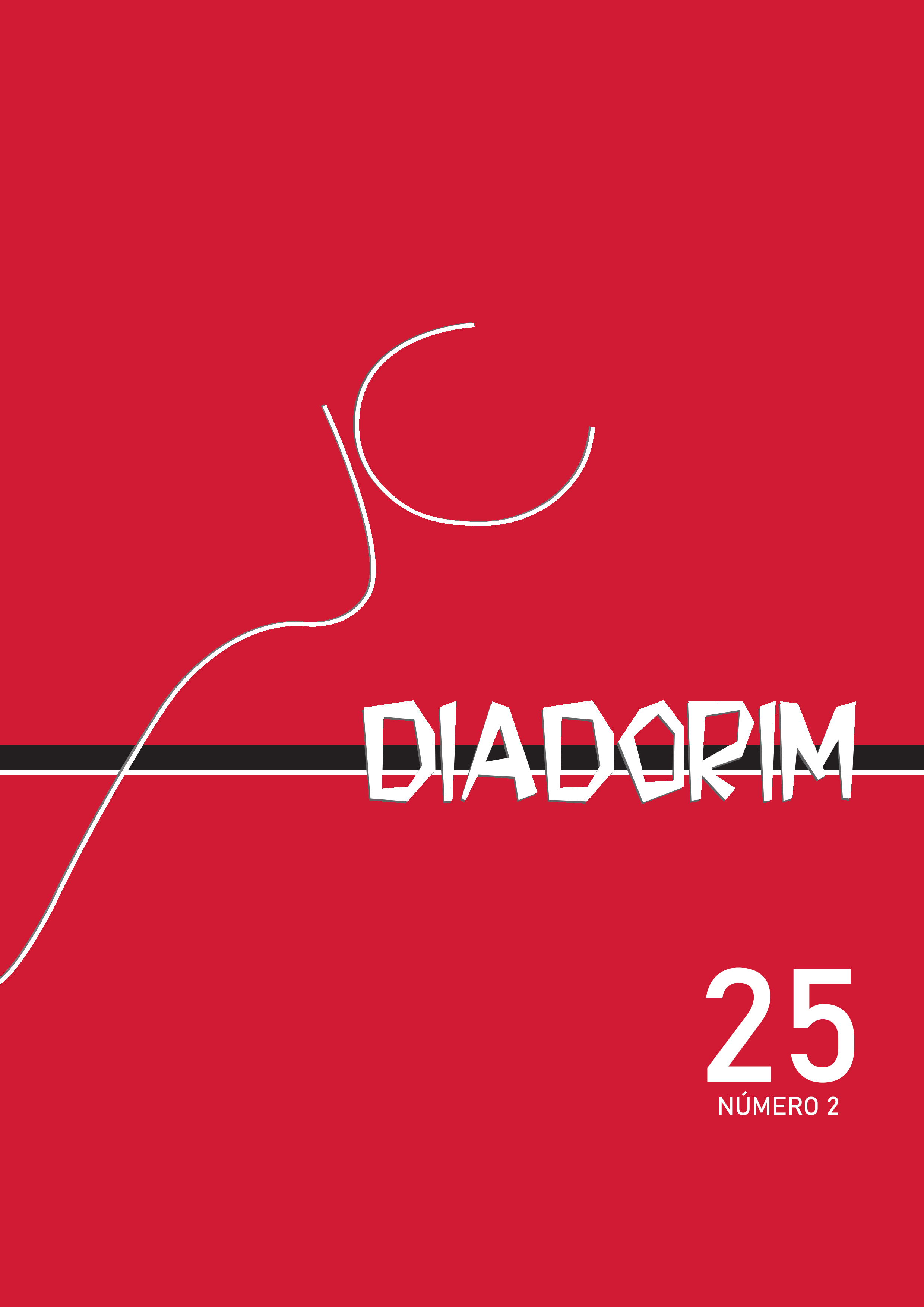Reading, speaking, writing and linguistic reflection: A proposal for integration between portuguese language teaching activities
DOI:
https://doi.org/10.35520/diadorim.2023.v25n2a56713Keywords:
Língua Portuguesa, Ensino-aprendizagem, Atividades didáticas integradas, Atividades sociais.Abstract
The objective of this work is to analyze the integration between reading, speaking, writing and linguistic reflection activities in Elementary School II, considering the need to expand the linguistic-discursive competence of learners, who need to mobilize themselves through the various socio-institutional instances of building language, in which subjects are required multiple proficiencies in different and complex pragmatic contexts. The theoretical framework is based on the postulations of Marcuschi (2005, 2008), Koch (2003, 2004, 2006), Koch and Elias (2009a, 2009b), Bazerman (2011), Bakhtin (1998, 2010a, 2010b, 2013, 2016, 2017), Moura (2016, 2017, 2019), for which language teaching activities are built on the very dynamics of socio-cultural practices. The analyzed corpus is part of activities developed by an elementary school teacher, organized in 04 (four) cycles, among which I analyze 3 (three) cycles, in which I reflect on the activities developed there, leading me to conclude on the need for integration between didactic actions mobilized in the classroom and in the school space, actions that lead to the subjects’ autonomy in the socio-interactive spaces in which they are inserted.
References
BAKHTIN, M. M. Marxismo e filosofia da linguagem. São Paulo: Hucitec, 2006.
_________. Estética da criação verbal. São Paulo: WMF Martins Fontes, 2010a.
_________. Para uma filosofia do ato responsável. São Carlos: Pedro & João Editores, 2010b.
_________. Questões de estilística no ensino da língua. São Paulo: Editora 34, 2013.
_________. Os gêneros do discurso. São Paulo: Editora 34, 2016.
BAZERMAN, C. Gênero, agência e escrita. São Paulo: Cortez, 2011.
DOLZ, Joaquim; NOVERRAZ, Michèle; SCHNEUWLY. Gêneros orais e escritos na escola. Tradução e organização Roxane Rojo e Glaís Sales Cordeiro. Campinas, SP: Mercado de Letras, 2004.
KOCH, I. V. A interação pela linguagem. São Paulo: Contexto, 2003.
____¬_____. Desvendando os segredos do texto. São Paulo: Cortez Editora, 2006.
_________. Introdução à linguística textual. 1ª. Edição. São Paulo: Martins Fontes, 2004.
KOCH, I. V; ELIAS V. M. Ler e compreender: os sentidos dos textos. São Paulo: contexto, 2009a.
____¬¬¬¬¬¬¬¬¬¬¬¬¬_____. Ler e escrever: estratégias de produção textual. São Paulo: Contexto, 2009b.
_________. Oralidade e ensino de língua: uma questão pouco “falada”. In: DIONISIO, A. P.; BEZERRA, M. A. (orgs.). O livro didático de Português: múltiplos olhares. Rio de Janeiro: Lucerna, 2005.
_________. Produção textual, análise de gêneros e compreensão. São Paulo: Parábola, 2008.
MOURA, H. L. M. Atividades de referenciação em narrativas afiliadas ao universo do lendário da Amazônia: implicações sociocognitivas e culturais. 338 f. Tese (Doutorado em Linguística. Área de Concentração: Linguística) – Instituto de Estudos da Linguagem, Universidade Estadual de Campinas, Campinas, 2013.
_________. Atividades de produção escrita realizadas por alunos da educação básica: uma perspectiva interacionista e sociodiscursiva do ensino de língua materna. Mimeo, 2016.
_________. Atividades didáticas integradas no ensino de língua (ADIs): uma concepção dialógica e sociodiscursiva. Mimeo, 2017.
_________. A integração entre as atividades de leitura, oralidade, escrita e reflexão linguística: uma proposta para o ensino de Língua Portuguesa no Ensino Médio. Revista de Estudos Linguísticos. V. 48, n 3, 2019.
VINHOTE, A. D. P. Atividades Didáticas Integrdas (ADIs): uma proposta para a ampliação da capacidade linguístico-discursiva dos alunos no ensino fundamental. Dissertação (Mestrado) – Universidade Federal do Oeste do Pará, Instituto de Ciência da Educação, Programa de Mestrado Profissional em Letras em Rede Nacional – PROFLETRAS, Santarém 2019.
Downloads
Published
Issue
Section
License
Copyright (c) 2024 Revista Diadorim

This work is licensed under a Creative Commons Attribution-NonCommercial 4.0 International License.
Copyright transfer -- Authorization to publication
If the submitted article is approved for publication, it is already agreed that the author authorizes UFRJ to reproduce it and publish it in Diadorim: revista de estudos linguísticos e literários, the terms "reproduction" and "publication" being understood as defined respectively by items VI and I of article 5 of Law 9610/98. The article can be accessed both by the World Wide Web (WWW) and by the printed version, with free consultation and reproduction of a copy of the article for the own use of those who consult. This authorization of publication is not limited in time, and UFRJ is responsible for maintaining the identification of the author of the article.

The journal Diadorim: revista de estudos linguísticos e literários is licensed under a Creative Commons Attribuition-NonCommercial 4.0 International (CC BY-NC 4.0).

